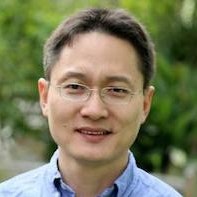 Dr. Zhongbo Kang, associate professor of physics who will head the program at UCLA.
Dr. Zhongbo Kang, associate professor of physics who will head the program at UCLA.
The program will be built in collaboration with higher education systems across California—the trainees will be selected through the Cal-Bridge program, a statewide network representing the Universities of California (UC), California State Universities (CSU), and over 110 community colleges. Cal-Bridge seeks to support minoritized students in the fields of Science, Technology, Engineering, and Mathematics (STEM).
“The UC and CSU systems are among the largest engines for social mobility in the United States and play a key role in providing opportunities to students from disadvantaged backgrounds,” said Dr. Zhongbo Kang, an associate professor of physics who will head the program at UCLA.
The grant comes from the U.S. Department of Energy’s (DOE) Office of Science and will offer mentoring, support, and hands-on research experience. Students will access internships at national laboratories and will have the chance to work with the DOE’s Electron-Ion Collider, their flagship research project for the future of nuclear physics.






















